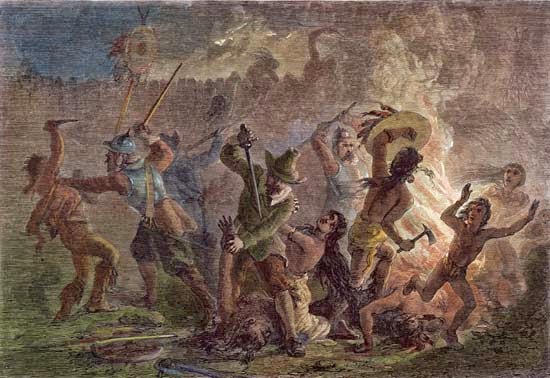-
Alameda Island Poets reading, Wednesday, January 3, 2018, 7:00-9:00 PM, Frank Bette Center, 1601 Paru St., Alameda, California:
We are honored to celebrate the new year with Hispanic culture, featuring Berkeley's first Poet Laureate, Rafael Jesús González and S.F.'s musician/poet, Francisco Herrera.
Our 1st Wednesday monthly reading is Wed., Jan. 3, 7-9pm, at Frank Bette Center, 1601 Paru St., Alameda. After the features is our open mic. We offer light refreshments and pass the hat. We are community-run and we appreciate your help setting up. Come early if you can!
peace, passion, and poetry,
Cathy Dana, Alameda Poet Laureate
Rafael Jesús González
(rjgonzalez.blogspot.com) was born (October 10, 1935) and raised in the
bicultural/bilingual environment of El Paso, Texas, U.S.A./Cd. Juárez,
Chihuahua, Mexico with family on both sides of the Río Grande. Just graduated
from El Paso High School 1954, he joined the U.S. Navy in the hospital corps
and served in the Marine Corps with the rank of Staff Sergeant. After military service,
he attended the University of Texas, El Paso (then Texas Western College of the
University of Texas) in pre-med taking time to attend the Universidad Nacional
Autónoma de México where he studied archaeology, Mexican literature, Mexican
History, and Mexican philosophy.
During this
time, he published his first poems and academic articles in English and
Spanish. On receiving the bachelor’s he decided to dedicate himself to literary
studies which he did under a Woodrow Wilson Fellowship and a National Education
Act Fellowship. He did his graduate studies at the University of Oregon.
As professor of
literature and creative writing, he taught at the University of Oregon, Western
State Collage of Colorado, Central Washington State University, the University
of Texas, El Paso (as Visiting Professor of Philosophy), and at Laney College,
Oakland, California where he founded the Department of Mexican and
Latin-American Studies. His poetry and academic articles appear in reviews and
anthologies in the U. S., Mexico, and abroad; his collection of poems El Hacedor De Juegos/The Maker of Games
published by Casa Editorial, San Francisco (1977-78) went through two editions.
A selection of his moon poems, La musa
lunática/The Lunatic Muse was published by Pandemonium Press, Berkeley,
California in 2009. He has been nominated thrice for a Pushcart price.
Also
a visual artist, his work has been exhibited at such venues as the Mexican
Museum of San Francisco, Galería de la Raza, the Oakland Museum of California,
the Charles Ellis Art Museum, Milwaukee. In 1996, he was named Poet in
Residence at the Oakland Museum of California and the Oakland Public Library
under a ‘Writers on Site Award’ from Poets & Writers, Inc. and was chosen
for the Annual Award for Literary Achievement by Dragonfly Press in 2002. In
2003, he was honored by the National Council of Teachers of English and
Annenberg CPB for his writing. He was named featured poet by the San José
Poetry Center, San José, California the fall of 2005. In November of 2005, he
was invited to read his poetry and present a paper at the World Congress of
Poets in Tai’an, Province of Shandong, China. In July 2006 he was named
Universal Ambassador of Peace, Universal Ambassador Peace Circle, Geneva,
Switzerland. In Spring 2007 he presented a paper and read his poetry at the 8º
Encuentro Literario Internacional aBrace in Montevideo, Uruguay and in Winter
2008 in Havana, Cuba. In 2012 he again received the Dragonfly Press Award for
Outstanding Literary Achievement and in 2013 the César E. Chávez Lifetime
Award. The City of Berkeley honored him with a Lifetime Achievement Award at
the 13th Annual Berkeley Poetry Festival May 16, 2015. He was named
the City of Berkeley's first Poet Laureate in 2017. He sat on the Advisory
Board of the Oakland Museum of California from 1995 until its dissolution 2015;
he sits on the Advisory Board of Dancing Earth, Contemporary Indigenous Dance Company.
He resides in Berkeley, California.
Latest album Honor Migrante crosses physical and musical borders
Growing up in the border town of Calexico, Francisco always straddles two worlds. “My siblings and cousins and I used to sing rancheras and some mariachi at family parties, and when we got a little older we started some garage rock bands,” he recalls of his early musical exploits. But as he became more involved in the church and social issues, in particular with the Latin American Herrera began exploring ways to use music to further his goals of social justice.
Herrera traveled extensively throughout Latin America working with community organizations even as he finished his four years at seminary school, all the while toting his guitar and whipping it out for events, actions, and church meetings. “Reflection, meditation, prayer, all those things are important. But they’re important so you can play a role here to make social change. De ahí nacen all those misas that have a social message.” He deftly weaves between English and Spanish as he explains the philosophy of Liberation Theology as he sits under portraits of his two heroes, Che Guevara and Monseñor Oscar Romero, the Salvadoran archbishop who was assassinated in 1980.
Francisco Herrera’s new album, Honor Migrante, is full of songs that reflect his passion for social justice. The themes range from immigrant rights to globalization, and the music itself crosses genre borders from traditional-sounding norteño and corrido tunes to post-modern electro-cumbia and Latin Rock wet with soulful vocals, wailing electric guitars, and a ripping Fender-Rhodes solo. All these sounds are melded smoothly together by veteran super-producer Greg Landau (Maldita Vecindad, Susana Baca) who met Herrera in the late 1980s on the Nueva Cancion circuit.
--
"If
we could read the secret history of our enemies,
We should find in each man's life sorrow and suffering enough to disarm all hostility."
Henry Wadsworth Longfellow
Visit my website: http://cathyedana.wordpress.comWe should find in each man's life sorrow and suffering enough to disarm all hostility."
Henry Wadsworth Longfellow
510-205-2375
-




























